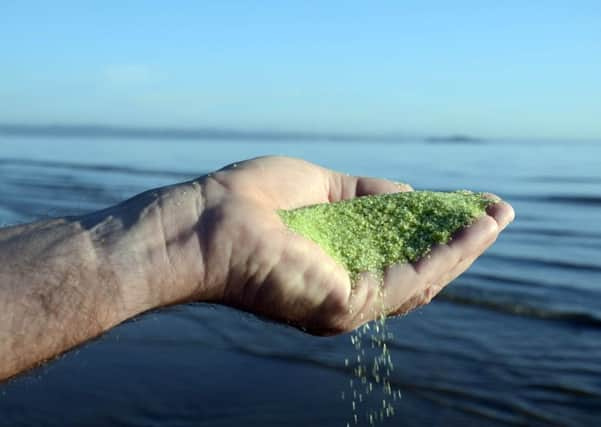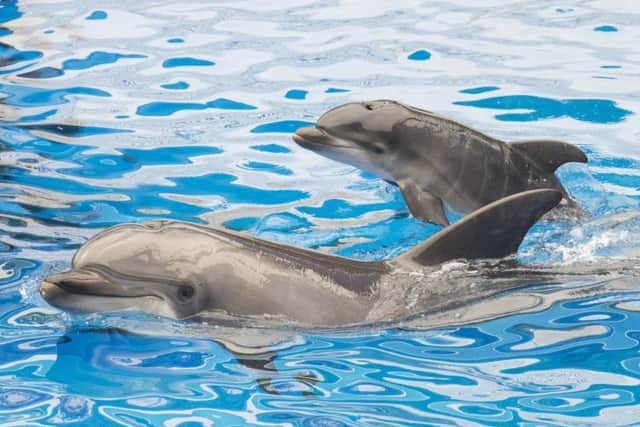How Scotland's empty wine bottles help create clean water


From allowing dolphins to swim in the cleanest of environments to bringing disease-free drinking water to six million people in India, an innovative water filter created in a plant outside Edinburgh is putting Scotland’s ‘empties’ to remarkable use.
Dryden Aqua in Bonnyrigg, Midlothian, was set up by marine biologist Dr Howard Dryden to create the cleanest possible water using his filtration system made from tiny glass particles.
Advertisement
Hide AdAdvertisement
Hide AdAfter arriving at the plant, the bottles, collected from local authorities around the country, are sorted, blasted with water and sterilised at temperatures of up to 1,000C before being broken down into tiny particles in a high pressure cyclone.


It is these tiny particles - each around the size of a grain of sand - that are used in the water filtration process.
Dr Dryden came up with his idea after researching water quality used in salmon farming, where sand was typically used as the filter.
He said: “I found that sand didn’t give a really good water quality.


“Basically, what we have done is reinvent sand and how it works as a water filter. Sand is used as a raw material to make glass. I thought ‘why not use glass to make sand’.“
This Activated Filter Material (AFM) is considered a more effective filter than sand given its surface is resistant to bacteria with the particles unable to clump together.
Sea World in San Diego and the Dubai Mall Aquarium are amongst those who use the AFM with around 200,000 swimming pools across Europe, including around 200 in Scotland, using his product to cut trichloramine, a by-product of chlorine, which has the potential to harm respiratory health.
In India, the AFM is to be used to remove arsenic and other pathogens from drinking water supplies in West Bengal. Calcutta and Pune with plans to give small companies the filter design for free so they can set up their own sustainable businesses.
Advertisement
Hide AdAdvertisement
Hide AdThe firm is also making moves to take the filtration system to Africa and is exploring future production factories in Netherlands, Middle East and Asia.
Dr Dryden, who employs 20 people, said everything at the Midlothian plant was recycled with around 200 tonnes of metal - such as lids and wire - taken from the bottles every year.
Water taken from the roof is used to wash materials with the plant producing the same amount of waste as around five houses.
Last year, the Midlothian plant was upgraded with image recognition technology to allow all bottles collected a banks - including clear glass - to be collected and sorted.
Dr Dryden said a huge amount of work was done to insure the recycling arriving at the Midlothian plant was treated to the “highest standard in Europe”.
However, he added that householders needed to be better informed about the need for good recycling habits.
He said: “The glass is being used for something really worthwhile but bottle banks end up being like disposal units. You can find everything in there from dirty nappies to bits of engine.
Dr Dryden is now in discussion with Fife Council - which he described as “very proactive” in dealing with environmental issues - to place stickers on bottle banks explaining how the glass will be used.
“We know it could make such a big difference,” he said.
